|
|
An External Advisory Board has been established for SEAFOODplus. It consists of 6 board members, each very highly skilled scientist not being within SEAFOODplus. Their task is to provide adequate scientific advice on how the research is being performed, based on progress reports, publications and other documentation material.
Their scientific skills reflect the scientific contents in the 6 RTD Pillars and 20 projects. The board members are highly knowledgeable within the specific RTD area they are assigned to provide advice on, and at the same time having a broad scientific experience enabling them to advice on the entire SEAFOODplus research programme.
There are 3 board members from USA, and 3 from Australia, United Kingdom and Norway.
They meet once a year in connection with the annual SEAFOODplus Conference. They had their first meeting on 6 October 2004 in Copenhagen.
The main conclusions from their report can be read in the EXECUTIVE SUMMARY  . .
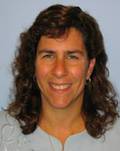
Dr. Cindy D. Davis, National Cancer Institute, NIH, Maryland, USA
Dr. Davis received her B.S. degree with Honor’s in nutritional sciences from Cornell University in Ithaca, New York, and her Ph.D. in nutrition with a minor in human cancer biology from the University of Wisconsin- Madison. She completed her postdoctoral training at the Laboratory of Experimental Carcinogenesis at the National Cancer Institute where her research focused on the cardiotoxicity and carcinogenicity of heterocyclic amines found in cooked meat. She then joined the Grand Forks Human Nutrition Research Center, USDA, as a research nutritionist. Her research focused on the effect of trace minerals, particularly selenium and copper, on cancer susceptibility. She was the 2000 USDA Early Career Scientist of the Year and also received a Presidential Early Career Award for Scientists and Engineers. She has published more than 70 peer-reviewed journal articles and six invited book chapters. She is on the editorial boards of The Journal of Nutrition and Experimental Biology and Medicine. Dr. Davis is currently a Program Director in the Nutritional Sciences Research Group at the National Cancer Institute. This group plans, develops, directs and coordinates extramural research programs in diet, nutrition and cancer as it relates to cancer prevention. Her current research focuses on the role of selenium in colon cancer prevention.
Dr. Davis is assigned to provide specific advice for RTD Pillar 1 Seafood and Human Nutrition.
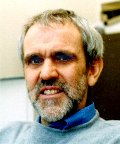
Professor Richard Shepherd, University of Surrey, United Kingdom
Richard Shepherd is a Professor of Psychology and Co-director of the Food, Consumer Behaviour and Health Research Centre, Department of Physchology at the University of Surrey. He is a Fellow of the British Psychological Society and Chartered Health Psychologist. His research has centred on two main themes related to factors influencing human food choice and risk perception and communication. The former has included the application of psychological models of attitude and attitude change to food choice and dietary change, while the latter has included work on trust, attitudes towards genetically modified foods and risk communication, including the role of uncertainty. He currently leads an EU project on consumer attitudes towards organic food and UK projects on ‘Attitudes to genomics’ and on communicating uncertainty on food chain risks, in addition to involvement in a range of projects on aspects of consumer behaviour.
Dr. Shepherd is assigned to provide specific advice for RTD Pillar 2 Seafood and consumer behaviour and well-being.
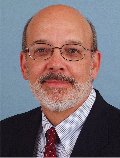
Professor Steve Otwell, University of Florida, USA
Steve Otwell is a professor at the University of Florida, Aquatic Food Products Lab., Gainesville, Florida, USA. He has served a professor in the Aquatic Food Products Program in the University of Florida for over 25 years conducting applied research and extension services addressing all aspects of seafood product quality and safety from production through processing to retail and food services for both domestic and international commerce of products from traditional harvests and aquaculture operations. He is the founder and National Coordinator for the Seafood HACCP Alliance for education and training based in the United States and serves as the USA Board Delegate for the International Association of Fish Inspectors. Since 1985 he has served as the Executive Director for the Seafood Science & Technology Society of the Americas and maintains annual international schools on warm water lobsters and shrimp.
Dr. Otwell is assigned to provide specific advice for RTD Pillar 3 Seafood safety.
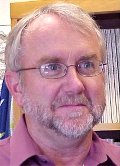
Professor Michael Morrissey, Oregon State University, USA
Dr. Michael T. Morrissey is Director of the Oregon State University Seafood Laboratory in Astoria, USA and is a Professor in the Department of Food Science and Technology. He has published numerous articles in seafood processing, safety, quality and by-product utilization and has an active research program in innovative technologies for seafood product development such as high pressure processing. Dr. Morrissey’s accomplishments and professional expertise have been recognized by his peers through various awards such as the Oldfield-Jackman Team Award (1996) for Pacific whiting research, the Earl P. McPhee Award (1999) for his contributions to seafood science and was elected an Institute of Food Technologists Fellow in (2003). He is Project Director for the Community Seafood Initiative, a program sponsored by the Kellogg Foundation and USDA, which offers assistance to seafood entrepreneurs, and small and mid-size businesses throughout the Pacific Northwest. Dr. Morrissey has given workshops on various seafood topics throughout the world including Mexico, Peru, Chile, Thailand and Indonesia. He has been Editor-in-Chief of the Journal of Aquatic Food Product Technology since 1998.
Dr. Morrisey is assigned to provide specific advice for RTD Pillar 4 Seafood from source to consumer product.
Dr. Ole J. Torrissen, Institute of Marine Research, Norway
Ole Torrissen is director of the programme “Biological Mechanisms in Marine Ecosystems and Aquaculture” at the Institute of Marine Research, Bergen, Norway. He has just finished a 6 year term as Research director and head of the Aquaculture Research and Advisory Programme. Ole Torrissen has his education in fish nutrition, but spent most of his working years on research and project management. He was the director of the Matre Aquaculture Research Station and the head of the salmonid research activity at the Institute of Marine Research for 15 years, and director of the Austevoll Aquaculture research station and head og the mariculture research group for 3 years. Ole Torrissen’s main research interests have been absorption and metabolism of carotenoids in fishes.
Dr. Torrissen is assigned to provide specific advice for RTD Pillar 5 Seafood from aquaculture.
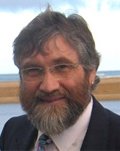
Dr. Allan Bremner, Allan Bremner and Associates, Australia
Allan Bremner, Allan Bremner and Associates, Mount Coolum, Australia, PhD FAIFST, has 45 years experience gained in industry and government R&D in 5 countries and 3 states of Australia in food technologies (36 years) of which most were in the seafood area (29 years). He has recently returned to Australia after 5 years as Research Professor with the Danish Institute for Fisheries Research and now operates a consultancy, Allan Bremner and Associates, from the Sunshine Coast north of Brisbane in Queensland. Prior to this he spent 5 years as Senior Principal Scientist and Seafood Group Leader at the Centre for Food Technology, Hamilton, Brisbane and was a Program Manager, Product Technology, and member of the Management Advisory Committee of the Cooperative Research Centre for Aquaculture. Preceding this he was 19 years with CSIRO Divisions of Food Research and of Fisheries firstly at the former Meat Research Lab, Cannon Hill, then at the Tasmanian Regional Lab, Hobart. Current activities are in traceability, defining quality and freshness, QIM, extracellular matrix, post mortem cytoskeletal changes in muscle and postmortem changes in tuna flesh.
Dr. Bremner is assigned to provide specific advice for RTD Pillar 6 Seafood traceability to ensure consumer confidence.
|
|
|
|